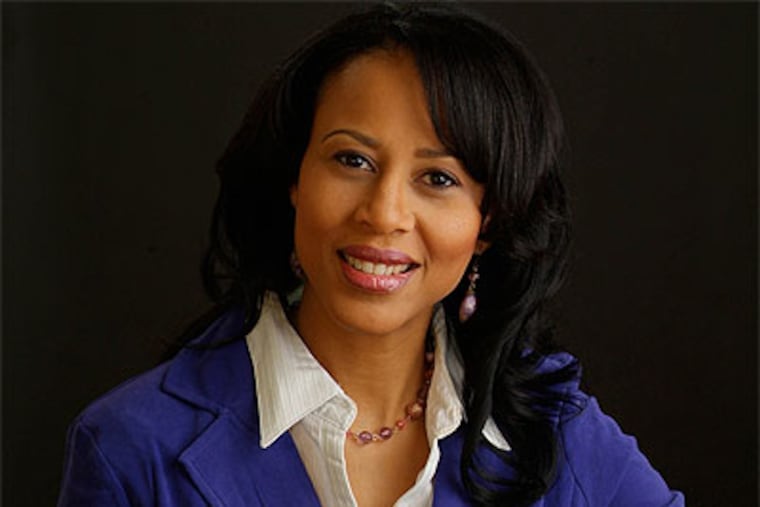Why moms are worth it
HERE'S A NO-BRAINER: Mothers and fathers have different styles of communication when it comes to talking about money. Fidelity Investments released a study showing that mothers have far more substantive discussions about money than fathers do when talking about estate planning or wills, health and elder care topics, and the ability to cover living expenses in retirement.

HERE'S A NO-BRAINER: Mothers and fathers have different styles of communication when it comes to talking about money.
Fidelity Investments released a study showing that mothers have far more substantive discussions about money than fathers do when talking about estate planning or wills, health and elder care topics, and the ability to cover living expenses in retirement.
Turns out moms are also a little easier to talk to. Sixty-four percent of mothers surveyed said it wasn't hard to start a conversation with their adult children about savings and investments, compared with 54 percent of fathers.
Ahead of Mother's Day, many companies are releasing surveys about the financial roles of moms.
One reason women are talking more about money, Fidelity said, is because they tend to be the family treasurer. Nearly 60 percent of working mothers say they also manage their household budget, according to a survey released earlier this year by Working Mother magazine and Chase Card Services.
Here's a statistic from the Fidelity survey that made me laugh. Thirteen percent of mothers, compared with 3 percent of fathers, are planning on an adult child caring for them as they advance in years. That's because many mothers drill it into the heads of their children as a backup plan in case they don't have enough money for retirement.
I've often jokingly (OK, maybe not completely joking) said to my three kids in response to their begging to buy them something, "You going to take care of me in my old age?"
In reply, they often say, "It depends." Right now, since I won't buy my 12-year-old a cellphone, her "depends" is a firm "no."
That's why I'm saving for my own retirement.
On the other hand, fathers - 47 percent compared with 32 percent of mothers - are counting on their spouses to care for them in their old age, although many men say they are concerned their spouse won't be financially up to the task.
Fidelity's findings come from its Intra-Family Generational Finance study conducted online among U.S. parents and their adult children.
Meanwhile, Insure.com has issued its annual Mother's Day Index, which values the responsibilities of a stay-at-home mom at $59,862 this year, down from $60,182 in 2012.
The online site uses various household duties such as being a cook, driver, housekeeper and party planner to calculate the salary using occupational wage data from the Bureau of Labor Statistics.
The statistics show that many say they are worth less than $40,000 a year and 62 percent of fathers agree, according to the site's survey of mothers with children age 12 or younger living at home. A small percentage of mothers - 7 percent - put their worth at $100,000 or more a year.
Insure.com's survey is a fun feature but ultimately should be a serious eye-opener and conversation starter. I like to use holidays that end up being more about consumption to emphasize the need for better money management.
One of the best gifts a mother or father can get for their children is financial security. Too often stay-at-home mothers (and fathers) don't have enough life insurance or any at all.
"We hope our survey can be a starting point for discussion about a person's financial value to their family," said Amy Danise, editorial director of Insure.com.
Use the index to think about what your worth is. "Whether or not a person has a salary from outside the home, the loss of that parent's value around the house could be financially devastating," Danise said.
The mistake many families make is thinking they will get free help from grandparents or other relatives. While you are celebrating Mother's Day, and Father's Day next month, figure out how much insurance you need to carry by breaking down the duties of both parents to determine their value while also factoring any debt and additional financial support the family would need, such as for college tuition or an emergency fund, Danise said.
I know it's not a great topic to bring up at Mother's Day, so let the occasion pass for now. But then have the conversation later.
And what would Mother's Day be without the annual survey about how much people plan to spend? Mother's Day gifts will average almost $169, up 11 percent from last year, according to the National Retail Federation.
By the way, first-time expectant mothers want their due before their due date, according to a survey by Eric Mower & Associates, a marketing communications agency.
Nearly 60 percent of pregnant women wanted their partner to buy them a gift for Mother's Day. However, six out of 10 of the expecting fathers were like, "Huh?" They didn't have a clue that they were expected to buy a present.
I asked my husband one year what he was getting me for Mother's Day - to which he answered, "You're not my mother."
In reply, I laughed.